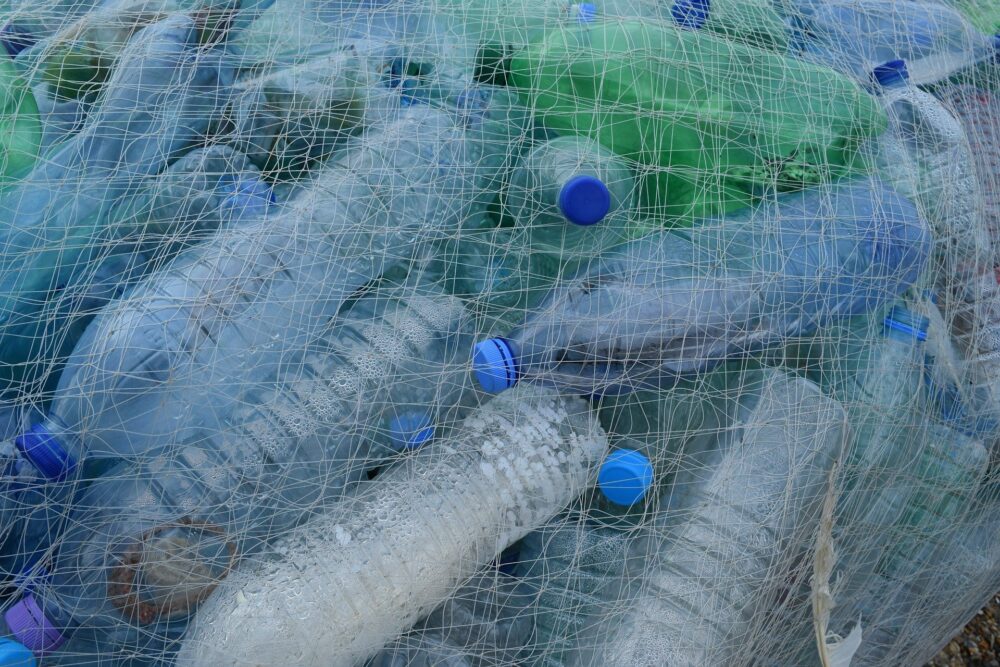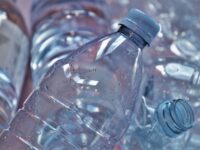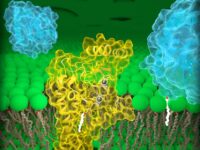Tea bags, coffee cups, clothing, soda cans, and gum are only a select few items that surprisingly all contain some form of plastic. The more obvious plastic water bottles, bags, electronics, and containers further display how humans live in a plastic-filled world. Although innovation and standard of living have greatly improved since its invention, plastic comes with some serious consequences, which raises the question: is a plastic-less world better than the current plastic-filled one?
Most plastics are categorized as polymers, consisting of repeating monomers with various side chains that allow for different physical and chemical properties. Plastic, with its many types and applications, engenders innovation at the expense of the environment and human health.
According to the United States Environmental Protection Agency, the U.S. generated 14.5 million tons of plastic containers and packaging in the year 2017 alone, with 70 percent of the plastic ending up in a landfill. The accumulation of plastic waste, domestically and internationally, has amounted to a total of 8.3 billion metric tons. However, landfills aren’t the only problem. About 8 million tons of plastic are dumped into the ocean every year. The almost indestructible plastic releases harmful chemicals that poison the water, and floating waste is often ingested by aquatic animals, causing them to choke and starve.
According to the United States Environmental Protection Agency, the U.S. generated 14.5 million tons of plastic containers and packaging in the year 2017 alone, with 70 percent of the plastic ending up in a landfill.
The tremendous environmental impact of single-use plastics is killing the planet’s wildlife along with the environment itself. Since humans are completely surrounded by and dependent on plastics, they are also negatively impacting themselves as they are exposed to toxins in them multiple times a day simply through the air, consumer products, food, and water. One major chemical, bisphenol A (BPA) is an industrial chemical that is used to make certain plastics and resins. This chemical is often found in the plastics of containers and water bottles, where it can seep into the food or liquid within. Because BPA disrupts the normal functions of the brains and prostate glands of fetuses, infants, and children, the FDA recommends using BPA-free plastic containers as well as avoiding heating plastic to prevent the possible breakdown that could release more BPA.
With so many damaging health and environmental effects it would seem plastic should be removed, but without plastic, the modern world would be nowhere near as innovative it is today.
Plastic has helped keep food fresh longer, allowing for less food to go to waste and ultimately less methane to enter the atmosphere. Plastic has enabled the advances that we see in modern medicine, as many research labs use equipment and supplies that are made of various plastic materials. Plastic also helped with sterility. Because plastic is so cheap and easy to mass produce, personal protective equipment, such as gloves, are essential for working in the lab, and disposable syringes allow for the easy administration of millions of vaccines and other drug products. In addition, technological advancements would not be possible without plastic because its insulating properties allow for necessary wire insulation and computer motherboards.
Plastics compose essentials, but they also find themselves in convenience, an ease that comes at the cost of millions of gallons of fossil fuels each year. The simplistic solution to this environmental price would be to use reusable bags instead. However, the Ministry of Environment and Food in Denmark found in 2018 that the carbon footprint of producing a reusable bag is so much greater than producing a plastic one that in order to make up for this difference the reusable bag would have to be used 7,100 times. Plastic waste is not the only environmental problem that humans face, and trying to find replacements causes trade-offs like increasing carbon emissions or logging. Thus, rather than looking into alternatives, research has shifted into finding environmentally friendly ways to break down plastic. For instance, in a 2014 study in Beijing, researchers have been examining the possibility of degrading polyethylene using caterpillars from the wax moth, Galleria mellonella. Although the results are promising, more research into degradation efficiency needs to be conducted to support using the method as a feasible solution to the plastic problem.
Thus, rather than looking into alternatives, research has shifted into finding environmentally friendly ways to break down plastic.
To revisit the question — would the world be better without plastic? The answer is not as straightforward as some might have initially thought. There is much research to be done before a plastic-free world is imaginable, but the damage to the environment and humans themselves is forcing researchers to look into environmentally friendly alternatives and other creative solutions.
Environ. Sci. Technol. (2014). DOI: 10.1021/es504038a






